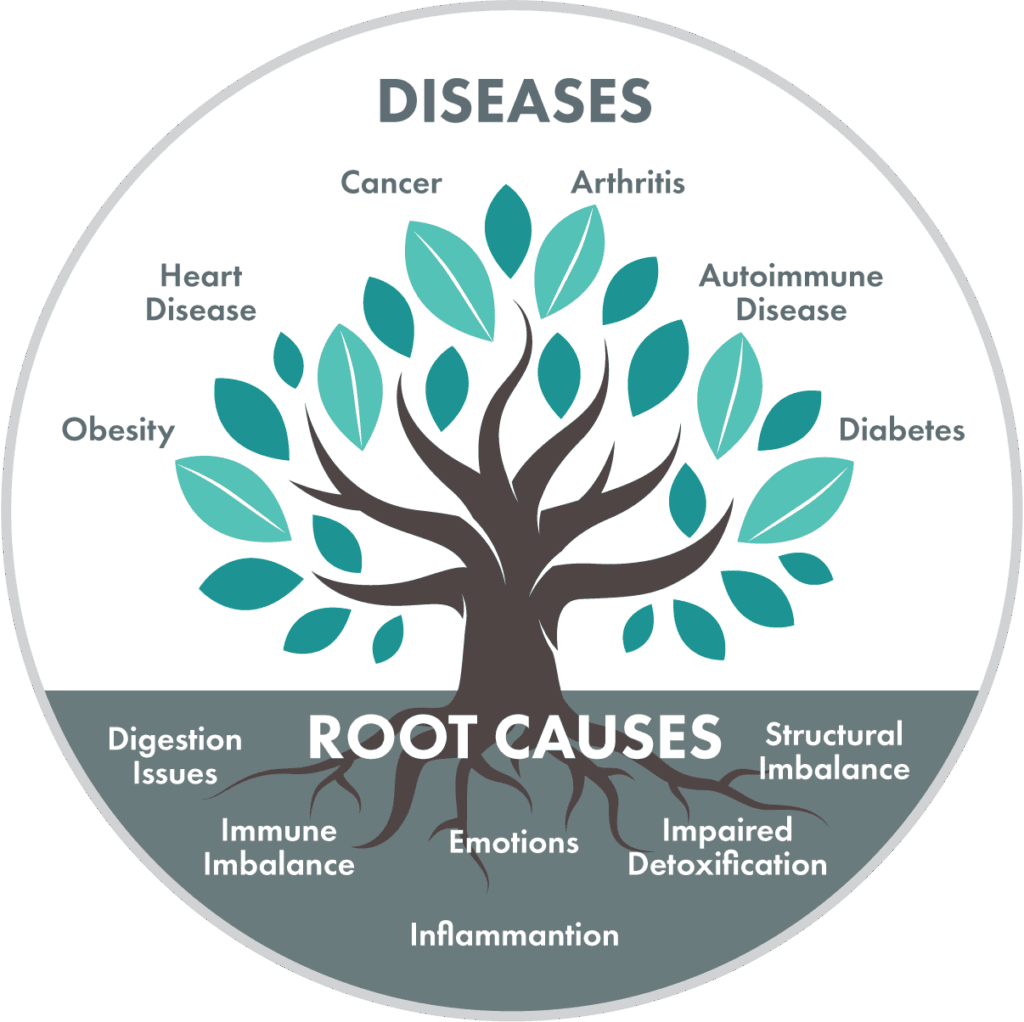Functional medicine is a personalized, systems-based approach to healthcare that focuses on identifying and addressing the root causes of disease rather than just treating symptoms. It views the body as an interconnected whole and recognizes that one condition can have many causes—and one cause can lead to many conditions.
Functional medicine practitioners use detailed histories, advanced diagnostic testing, and lifestyle interventions to restore health and prevent chronic disease. The approach emphasizes the importance of diet, lifestyle, and environmental factors in influencing long-term health.






